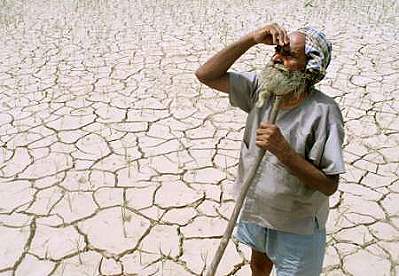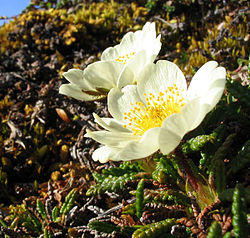Environmental threats to food
Some very serious environmental issues are gaining wider exposure in the media as of late. All three of these issues have been noted previously on planet doom?. And all three threaten the security of our food supply, now or in the future.
A particularly pressing issue is the here and now threat to our food supply. An article from ScienceAlert indicates that world food security is at its lowest levels since recordkeeping began about 50 years ago. The accompanying graphic illustrates the sharp downward trend over the past 6-7 years.
here and now threat to our food supply. An article from ScienceAlert indicates that world food security is at its lowest levels since recordkeeping began about 50 years ago. The accompanying graphic illustrates the sharp downward trend over the past 6-7 years.
What is driving this? Climate change, especially its effects on amplifying drought. Numerous droughts and unprecedented floods have been reported this year, affecting crop production and degrading the land. Locations around the world -- the United States, India, Europe, Africa, Asia, Australia -- are feeling the pinch. Plant diseases are flourishing in the newly changed climate. Soils are becoming over-used and subject to desertification.
Nitrogen pollution is emerging as a potential threat to diversity. This inert gas, vital to life, is being deposited from the atmosphere to the earth at an increasing rate. This extra nitrogen comes from human sources, namely automobiles and intensive farm practices. This deposition reduces species diversity in grasslands, with unknown consequences. The threat may be reducing. Or it may be too late and we have already passed a tipping point. We just don't know. Does this only affect grasslands, or is this factor playing a role in the loss of diversity (in addition to other human meddling) being observed in forests?
To feed the growing population and makeup for the shortfall in grain we are observing, more intensive agriculture is required. But this causes further nitrogen pollution, further degrading the land and reducing food production...An unpleasant feedback loop. The ScienceAlert article noted above suggests that more scientific/agricultural research input is required, but unfortunately government policy (at least in Oz) is making this unfeasible. The government is making token gestures, but they are apparently underestimating the magnitude of the problem.
Unfortunately, we may not be able to rely on the ocean to makeup the shortfall. Ocean acidification, a byproduct of our CO2 enhancement experiment, is threatening corals and subsequently other marine life. This acidification is proceeding much faster than expected, on the scale of decades rather than the centuries previously imagined.
From the article
Corals and plankton with chalky skeletons are at the base of the marine food web. They rely on sea water saturated with calcium carbonate to form their skeletons. However, as acidity intensifies, the saturation declines, making it harder for the animals to form their skeletal structures (calcify)...[but]“It isn’t just the coral reefs which are affected – a large part of the plankton in the Southern Ocean, the coccolithophorids, are also affected. These drive ocean productivity and are the base of the food web which supports krill, whales, tuna and our fisheries.
So, if the threat from overfishing and marine pollution weren't enough, we now (potentially) have another way to do ourselves in. Overfishing itself is partially responsible for reef destruction, and other fishing methods, designed with 'economic efficiency' in mind, also wreak havoc on biodiversity. Recent observations of the increase in jellyfish numbers suggest that we may have already pushed the ocean ecosystem too far even without acidification...That will just be the coup d'gras.
These new findings indicate that our CO2 enhancement experiment -- and the associated climate change – are truly a threat to humankind. The time has come to get serious about action to rectify this intolerable situation. The future depends on it. Let's hope we act before it is too late (if it is not already).












